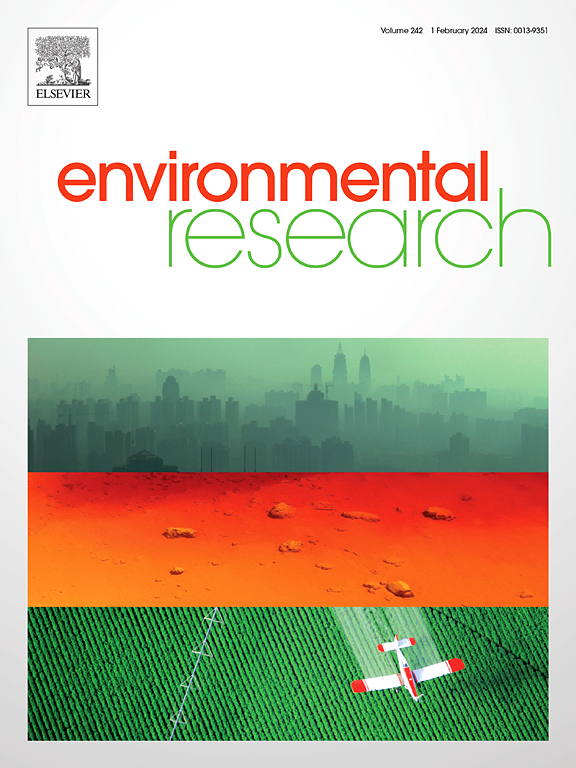探索茶渣在水泥砂浆中的潜力:着重于力学和耐久性性能。
IF 7.7
2区 环境科学与生态学
Q1 ENVIRONMENTAL SCIENCES
引用次数: 0
摘要
农业废物因其高可得性和增值潜力而特别具有吸引力。茶是世界上消费量第二大的饮料,在加工过程中产生大量废物,其中大部分被填埋或焚烧,造成了环境问题。因此,茶废物必须被视为一个重要的废物流,需要有效的管理和价值。在本研究中,茶渣在不受控和受控条件下燃烧得到两种不同的灰,随后对其化学、矿物学和物理性质进行了表征。在控制燃烧下产生的灰分——表现出较低的着火损失(LOI),此处称为ctwa——被掺入水泥砂浆中,并对所得混合物的强度和耐久性性能进行了评估。该研究与以往主要关注强度特性的研究不同,强调了干燥收缩性能和耐高温性能等关键耐久性参数。用2%、4%、6%、8%和10%的茶废灰替代砂浆样品。分别于第2、7、28天对超声脉冲速度(UPV)、抗折强度、抗压强度等关键参数进行评估。第3 ~ 28天监测干燥收缩率和质量损失率。样品暴露在300°C、600°C和900°C的温度下,之后进行质量损失、UPV、强度和目视检查。结果表明,较高的CTWA取代率降低了材料的力学性能,但由于碱含量的增加而增加了干燥收缩率。本文章由计算机程序翻译,如有差异,请以英文原文为准。
Exploring the potential of tea waste ash in cement mortar: A focus on mechanical and durability properties
Agricultural wastes are particularly attractive due to their high availability and potential for valorization. Tea, the second most consumed beverage worldwide, generates substantial amounts of waste during processing, much of which is landfilled or incinerated, creating environmental concerns. Therefore, tea waste must be regarded as a significant waste stream requiring effective management and valorization.
In this study, tea waste was combusted under uncontrolled and controlled conditions to obtain two distinct ashes, which were subsequently characterized in terms of their chemical, mineralogical, and physical properties. The ash produced under controlled combustion—exhibiting a lower loss on ignition (LOI) and herein referred to as CTWA—was incorporated into cement mortars, and the resulting mixtures were evaluated with respect to their strength and durability performance. The research distinguishes itself from previous studies, which have predominantly focused on strength properties, by emphasizing key durability parameters such as drying shrinkage behavior and high-temperature resistance. Mortar samples were created with 2 %, 4 %, 6 %, 8 %, and 10 % tea waste ash substitution. Key parameters such as ultrasonic pulse velocity (UPV), flexural strength, and compressive strength were assessed on the 2nd, 7th, and 28th days. Drying shrinkage and mass loss were monitored from the 3rd to the 28th day. Samples were exposed to temperatures of 300 °C, 600 °C, and 900 °C, after which mass loss, UPV, strength, and visual inspections were conducted. Results indicated that higher CTWA substitution rates reduced mechanical properties but increased drying shrinkage due to elevated alkali content.
求助全文
通过发布文献求助,成功后即可免费获取论文全文。
去求助
来源期刊

Environmental Research
环境科学-公共卫生、环境卫生与职业卫生
CiteScore
12.60
自引率
8.40%
发文量
2480
审稿时长
4.7 months
期刊介绍:
The Environmental Research journal presents a broad range of interdisciplinary research, focused on addressing worldwide environmental concerns and featuring innovative findings. Our publication strives to explore relevant anthropogenic issues across various environmental sectors, showcasing practical applications in real-life settings.
 求助内容:
求助内容: 应助结果提醒方式:
应助结果提醒方式:


